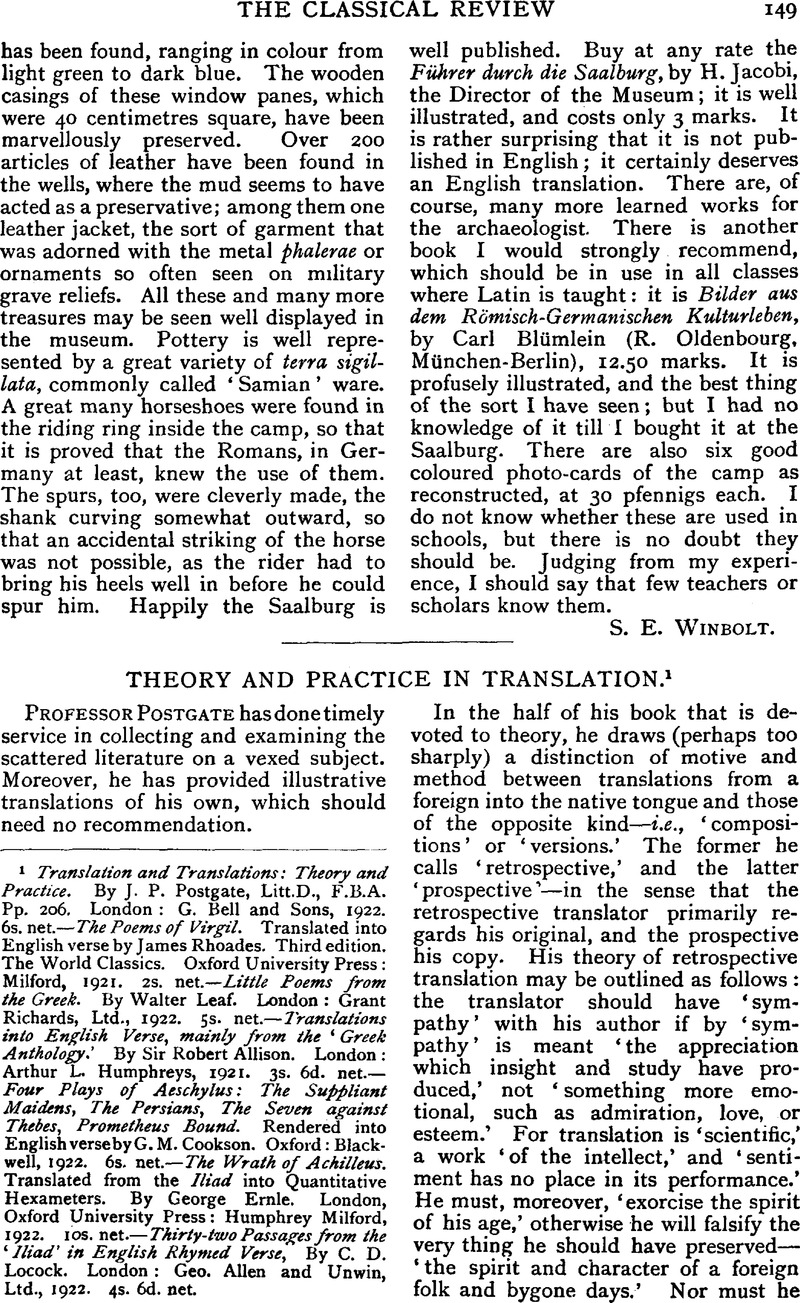No CrossRef data available.
Published online by Cambridge University Press: 27 October 2009

page 150 note 1 If the confused meanings of this word could be sifted the controversy might prove more fruitful. J. Middleton Murry in The Problem of Style (1922) has some useful suggestions in the same field of enquiry.
page 150 note 2 Professor Postgate prints no translations of his own from the Greek (apart from a single couplet). Had he done so, it would have been interesting to see if an audience innocent of the classics could distinguish them from those with Latin originals.
page 150 note 3 Cp. J. A. K. Thomson, ‘Some Thoughts on Translation’ in The Greek Tradition: ‘The translator's language, if it is to be English poetry at all, will be fuller, more coloured, more personal in the turn of its expression than the Greek.’ A review, ‘The Art of Translation,’ in Times Lit. Supp., February 16, 1922, applies similar principles to the translation of oratorical prose.
page 151 note 1 Cf. Winbolt, S. E., Latin Hexameter Verse, p. 58, § 23.Google Scholar
page 151 note 2 ‘Was ist Uebersetzen?’ Reden und Vorträge’ p. 12.
page 152 note 1 Cf. Professor Postgate op. cit., p. 62.
page 152 note 2 The ‘trellis.’ Cf. On Metrical Translation, sub. fin.
page 152 note 3 Croiset, , Hist. Lit. Grec. 1., p. 22Google Scholar, compares πε-ρι-ε-φε-ρε, cir-cum-fe-re-bat. Professor Postgate l.c., p. 86, points out that to a Roman the metrical effect of four closed syllables, as in the English dis-in-her-it (for di-si-nhe-rit), would have been ―.
page 153 note 1 4. 178 f. = Il. xviii. 189 f.
page 153 note 2 2. 373 f. = Il. ix. 379 f. ‘Stars’ are an unjustifiable ‘embellishment.’
page 153 note 3 5. 346 = Il. xix. 415.
page 153 note 4 5. 315 f. = Il. xix. 386.
page 154 note 1 4. 187 f. = Il. xviii. 198.
page 154 note 2 Cp. on this subject Professor A. C. Clark's Prose Rhythm in English.
page 154 note 3 1.358 f. = Il. i. 479–82.
page 154 note 4 2. 381 = Il. ix. 387.
page 154 note 5 Cp. on this subject H. M. Butler, Some Leisure Hours of a Long Life, p. vii: ‘Each metre has a personality of its own.’